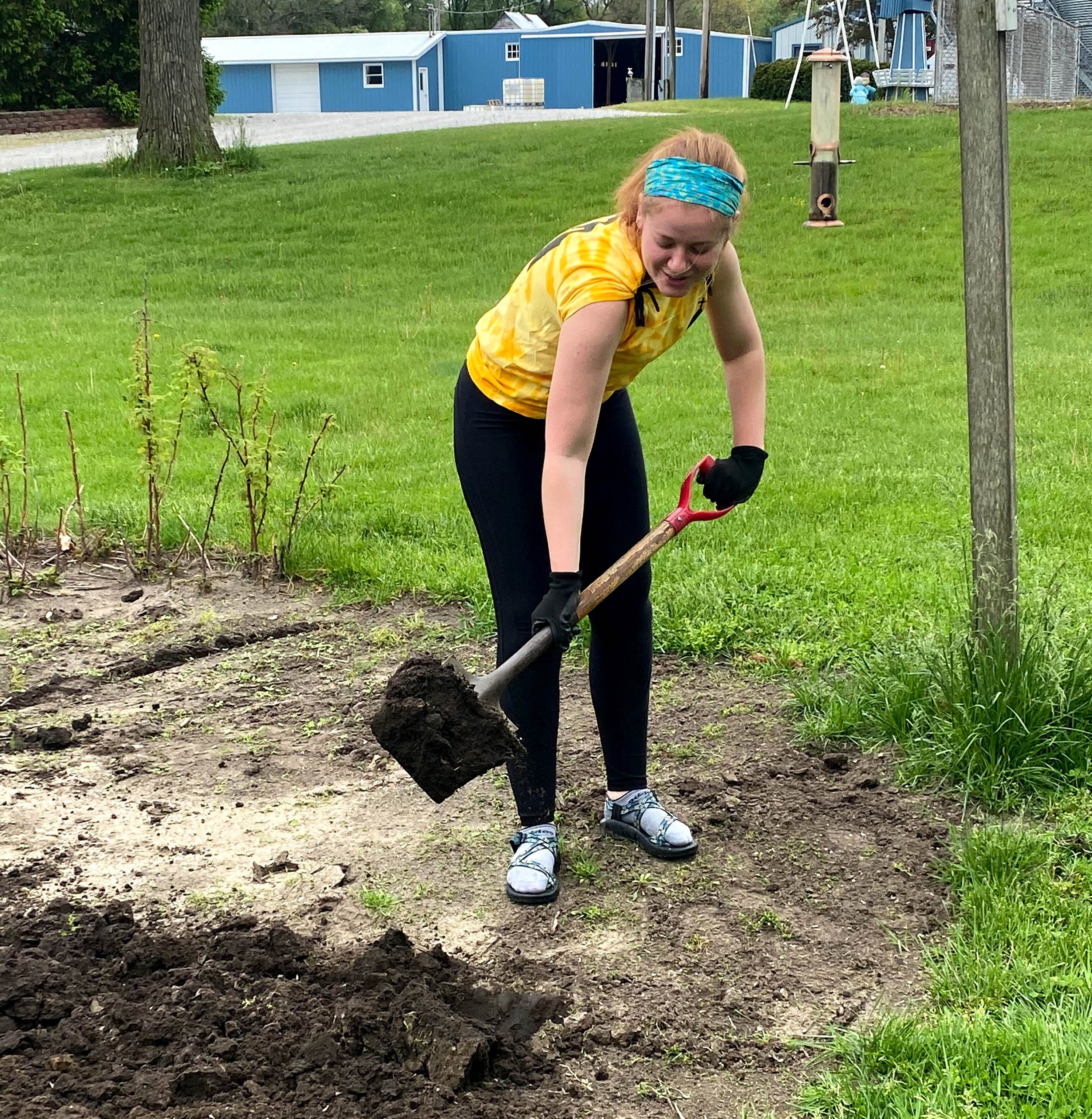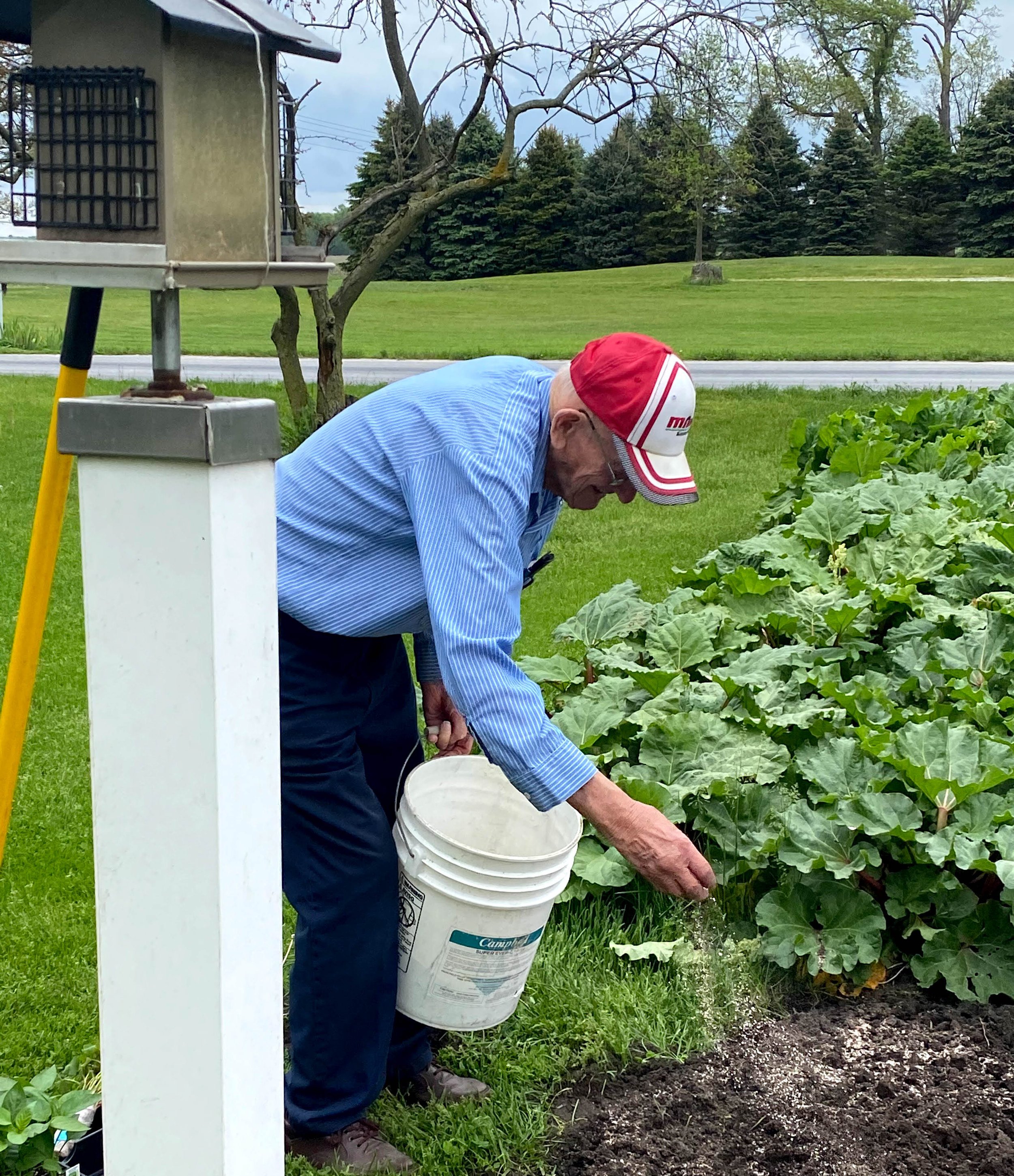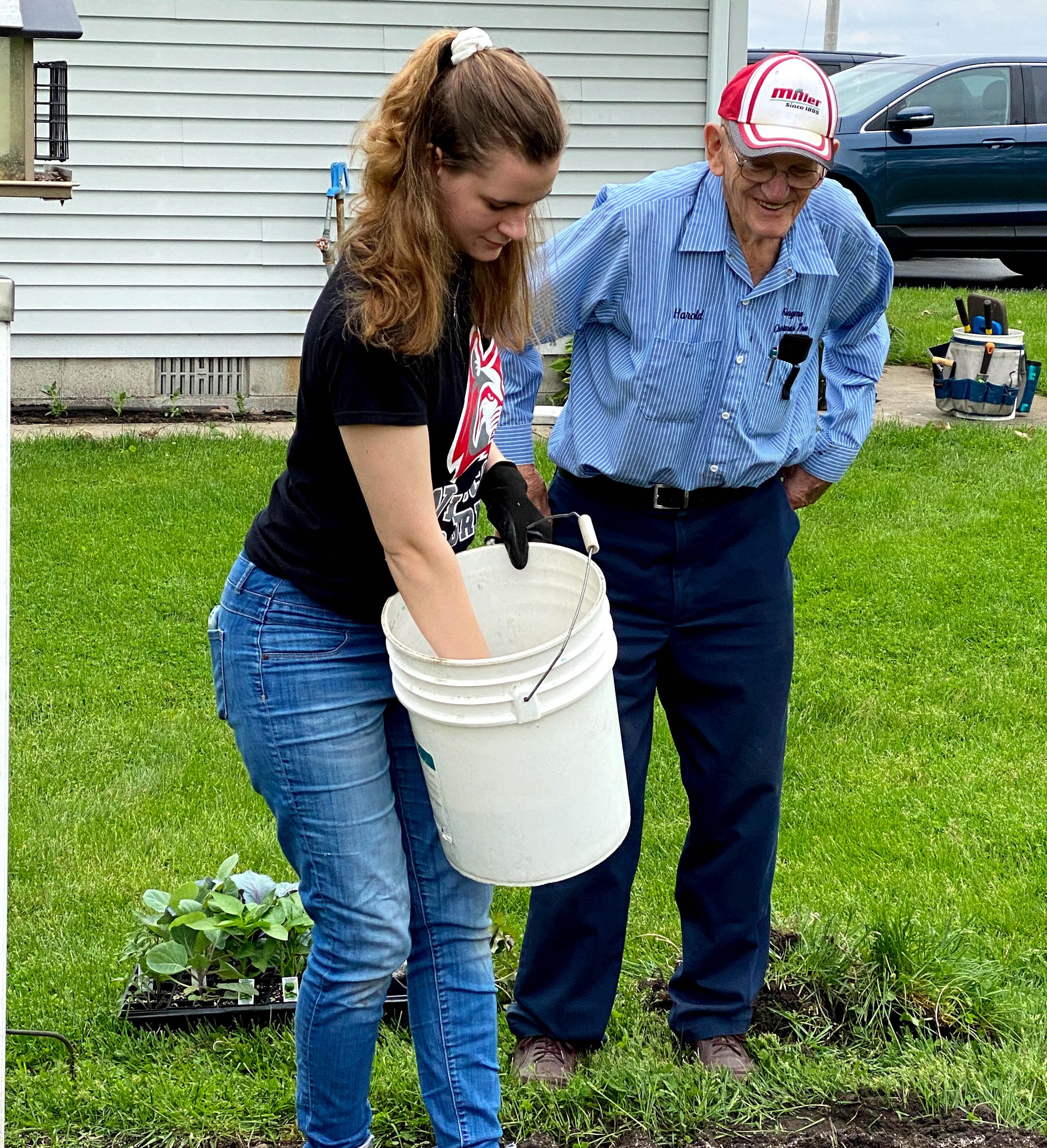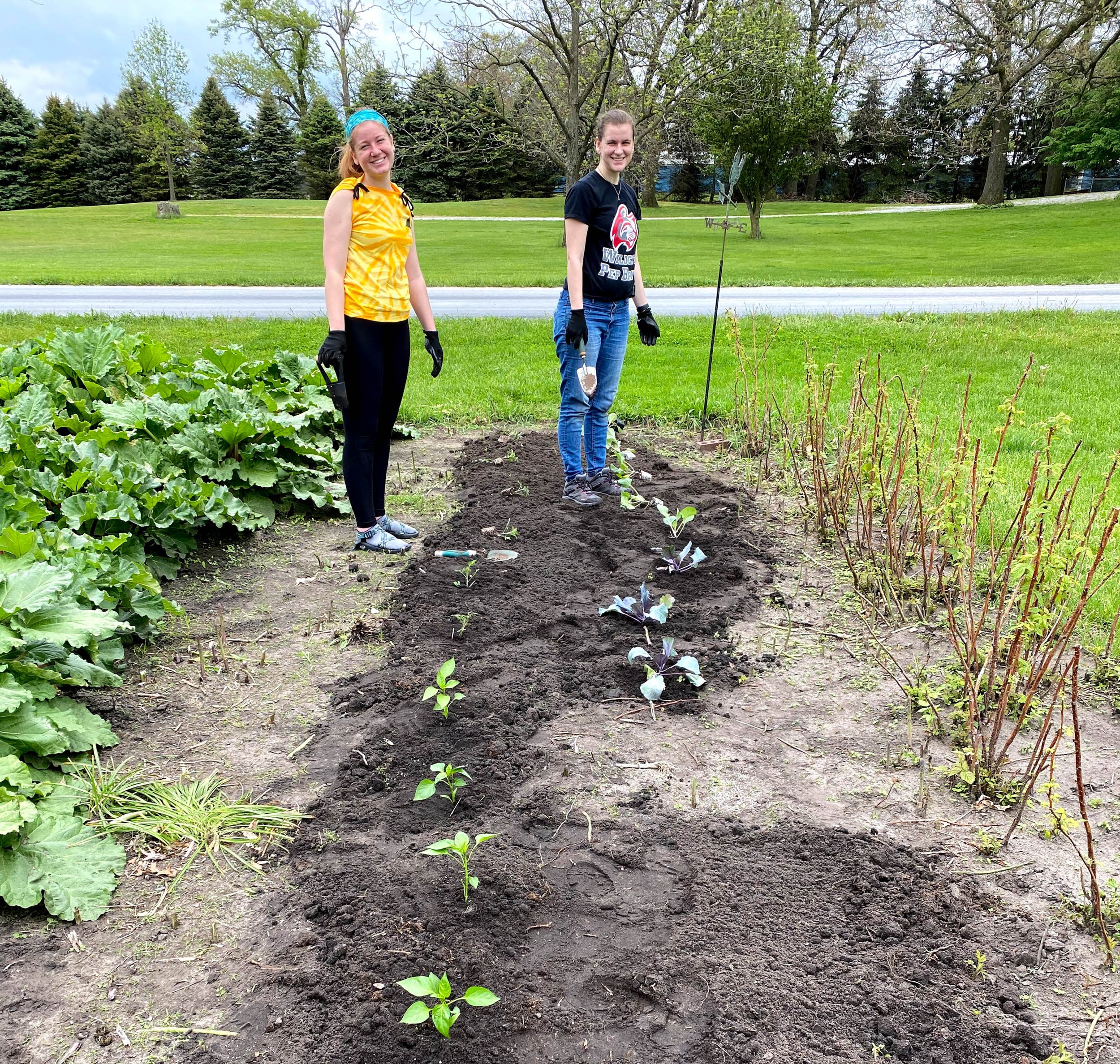Tending the Garden
A story of seed-planting, bean-snapping, and tending to all that we love.
I remember that August afternoon, snapping green beans with Mom.
We were at the kitchen table, alone in the house. Not the big, white farmhouse I grew up in, but the smaller, red brick one–the one my grandmother lived in during my growing-up years–just down the hill from the big house.
Between the red brick and the white farmhouses, was The Garden. In spring, shoots of asparagus and rhubarb poked through the rich, black soil in brilliant green and reddish purple. And Dad would get busy.
He’d never let his harvest go to waste, but stocked their freezer with produce, gave some to us kids, and proudly shared his delectable rhubarb crisp. Though my mother had done all of this previously, when Alzheimer’s stole her initiation skills and farmwife instincts, Dad stepped in without missing a beat.
In late summer, the harvest transitioned to heads of cabbage, buckets of tomatoes, kitchen bowls full of green beans, peppers, and cucumbers, plus a few treasured raspberries. Again, Dad would serve, save, and share his bounty. Autumn would bring on the sweet potatoes and squash.
The Garden, their pride and joy, provided year-round pleasure. And that garden needed tending.
In the spring of 2020, as Mom and Dad were aging, and the pandemic was raging, my sister-in-law sent a message to me and my three sisters asking if anyone could help Dad plant the garden. At 86, he was unsteady on his feet, but as a stubborn farmer, he insisted on tending this uneven ground. My two daughters were completing college studies online at home, so I volunteered the three of us.
“Do we have to?” they said, as they sluggishly prepared to leave.
“What should we wear?” asked the fashionista.
“Just find an old pair of jeans or leggings and a t-shirt. And you’ll need some gardening gloves.” By the time we reached my parents’ farm, a two-hour drive away, the girls’ enthusiasm had grown. They always enjoyed seeing their grandparents, their old-age quirkiness and Grandpa’s corny jokes never failing to amuse.
Stepping out of their comfort zones and into the garden dirt, trowels, and hoes in their gloved hands, the girls gained a new appreciation that day for the work their Grandpa had done most of his life. They chatted excitedly about the bounty of the garden we would all enjoy in the months to come.
Watching them spend time with my dad–their physical strength alongside his growing weakness, yet their naivete alongside his wisdom–brought me deep joy.
Had I known–had any of us known–that Dad would not live to see that harvest, the joy I felt would have been tempered with a deep sadness. Had we known about the fall and brain bleed that would take his life just two months later, I imagine we would have laughed harder at his jokes, spoken more tenderly in response to his frustrating habits and old-fashioned opinions, and said more “I love you’s.”
With Dad gone, the responsibility of tending to Mom’s care fell to my siblings and me, until we could find a suitable live-in caregiver. In August, during one of my brief stays in that little red house, I sat across the table from Mom, snapping the beans Dad and my girls had planted. And my mom–the hard-working, dutiful farmwife of over 60 years–complained about the simple task of snapping beans.
“Do I have to?” she said, reminiscent of a couple of young ladies, a couple of months earlier.
Alzheimer’s had stolen Mom’s drive and work ethic. I remembered her younger days as our canning queen, slaving over the pressure cooker while removing batch after batch of steaming hot mason jars. Those jars, filled with beans, tomatoes, pickles, and peaches would line the cellar shelves and feed our family during the winter months.
It had also taken her fashion sense (the one my fashionista daughter inherited). The pilling shirt and sweatpants she was wearing for the second day in a row were evidence of that.
More difficult, was the way the disease had decimated her short-term memory, causing her to make comments and ask questions on repeat all day long. The most crushing question of late was “Where’s Dad?”
Thankfully, her laid-back and kind demeanor and her harmless sense of sarcasm and humor remained, allowing me to coerce her into helping with this simple task. We laughed at her complaints.
And we talked about what happened to Dad. For the millionth, heartbreaking time.
When I wanted to nag, saying, “Come on, Mom! You know how to do this!” I spoke tenderly instead. “Hey, Mom, remember when you used to make fresh green beans with bacon and a twist of vinegar? Should I make some for supper tonight?”
“Sure,” she said with a shrug of her shoulders.
“You’re going to have to teach me how,” knowing full well she wouldn’t remember the details, and I’d have to Google it.
As we snapped beans, I snapped a picture of Mom across the table from me. She forced a smile to appease me.
It was the last time I would snap beans with Mom.
Before I left that evening, I said “I love you,” as I did every time we said goodbye from then until eight months later, when she left the house, The Garden, and this earth, to join Dad in heaven.
And if there’s a Garden there, I’m sure they’re tending it well.
(This story was originally published on 3/25/23, at lindahanstra.substack.com.)




